Due to the Coronavirus pandemic, the world is facing a new challenge: the disposal of masks. Millions of people are using cloth masks, but millions more are using disposable paper masks and paper-plastic N95s. Most of these masks are not meant to be reused or sterilized, nor are they designed to be recycled.
The Pollution Problem
Disposable masks are a huge waste problem. Take the United Kingdom for example. Estimates of individuals using even just a single disposable mask each day put out 66,000 tons of contaminated waste (the masks themselves) and another 57,000 tons of plastic waste from packaging, per year. And that’s just the UK, a relatively small country compared to the likes of America, China, or the rest of Europe.
Disposable masks contribute to a variety of pollution issues. Not only are they themselves items that reach landfills (or are discarded on the side of the road), they can often make their way to waterways, where they can be eaten by wildlife, or slowly degrade, contributing many microplastics and fibers that do more damage to the environment.
Under normal circumstances, the solution to this is recycling. Many forms of plastic can be recycled, and processes are already in place to handle them. Or are they? As it turns out, even typical recycling processes are fraught with issues, from ineffective or equally-polluting methods of dealing with discarded plastics, to contamination leading to entire shipments being discarded, to recycling centers just sending everything to landfills anyway.
Why Masks and Gloves Need to be Discarded
Unfortunately, during the pandemic, masks and gloves are a special case. Though they’re made of plastics that could be recyclable under normal circumstances, these are not normal circumstances. There’s one thing that differentiates masks and gloves from other forms of recyclable waste: disease.
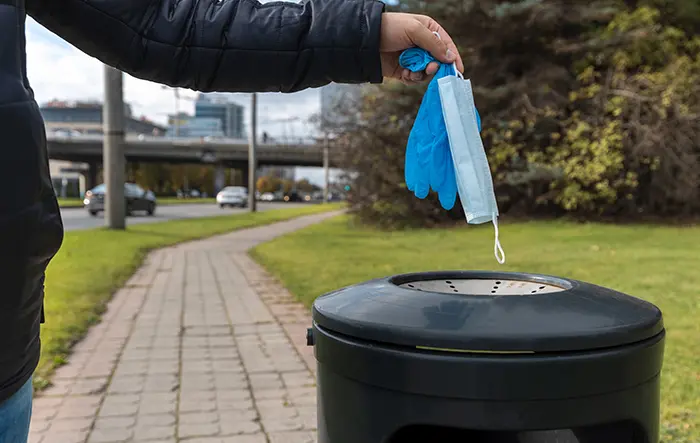
The Coronavirus pandemic has put a damper on many industries around the world. While recycling is a dirty job, to begin with, recycling masks and gloves is an additional hazard: a biohazard.
Normally, biohazards are relegated to facilities like hospitals. Hospitals go through a ton of disposable hazards; masks, gloves, gowns, and all the various little plastic bits and bobs that are inserted into people during medical treatment. Metallic objects like needles and tools can be autoclaved to sterilize them and reuse them (though needles, in particular, are shipped out to be processed beyond the capabilities of your average hospitals).
What happens to medical waste, including masks, normally? The answer is incineration. The vast majority of medical, biohazardous waste is packaged up into highly resistant bags for transportation and then shipped to facilities specifically designed to handle this medical waste. They aren’t recycled, they aren’t sterilized and repurposed; they’re incinerated.
No other solution is really safe. Anything else can lead to environmental contamination or the spread of disease to other people.
Your average landfill is not equipped to sort out medical waste or process it properly. At the same time, though, your average recycling facility is even more poorly equipped to handle medical waste, and such waste will often lead to entire batches of recyclables being discarded.
Thus, there are two main reasons why you can’t recycle masks and gloves. Recycling centers are not equipped to handle the hazardous waste of that kind, and sending it to a recycling center is liable to cause more waste than just the masks might indicate. Additionally, properly recycling a mask is a nearly impossible task. The general solution is simply to burn them.

Incineration has some benefits. It can be used to generate energy, for example, though it has also been linked to environmental toxins and other contamination being spread around their facilities.
In short, it’s mostly a no-win situation. So what can you do instead?
How to Eliminate the Problem
While many people consider N95s to be an upgrade over cloth masks, they’re more of a side-grade. Sure, an N95 might be able to filter more particulate than some cloth masks (unless that cloth mask has a filter of its own), but it’s disposable and creates more environmental waste. Cloth masks, at least, can be reused.
For situations where you need to filter out something in the air like wildfire smoke, an N95 mask is a fine option. For something like the Coronavirus, where the primary concern is droplets, using a cloth mask is effective enough.
Thus, if waste is your primary concern, the #1 thing you can do is switch to using a cloth mask. Cloth masks stop droplets and help prevent you from spreading the virus, though some may not necessarily help keep you from catching it. If 100% of people wore masks, the spread of the disease would be severely limited, but not completely stopped.
There are certain brands of cloth masks that come with disposable filters you can swap in and out. Do note, disposable filters cannot be recycled either, so be sure to dispose of those the same way you would dispose of your mask.
As far as gloves are concerned, our recommendation is simply not to use them unless you have to. 99% of Coronavirus transmission happens through airborne means, not surface contamination. Washing your hands or using hand sanitizer regularly is far more important than wearing gloves.
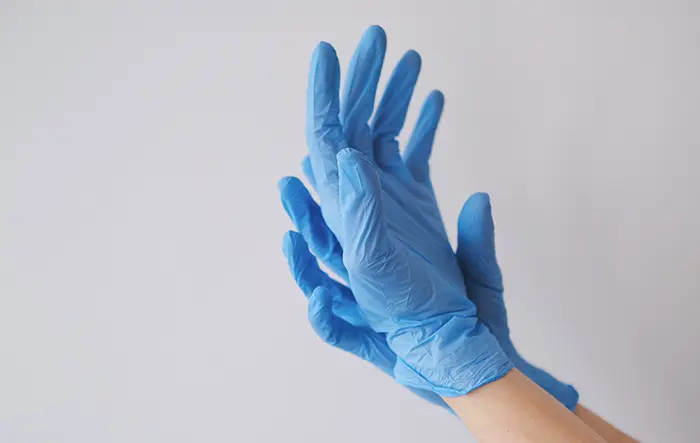
Wearing gloves also can lend you a false sense of security. They’re not cleaner than your hands; they protect your hands from contamination, but anything you touch can still spread it, as can touching your face while wearing gloves that have touched something contaminated. It’s better to not wear gloves at all while practicing frequent hand hygiene than it is to wear gloves.
One thing you should never do is try to incinerate masks or gloves yourself. The facilities that handle medical incineration use specifically designed machinery to do it, and they burn at much higher temperatures than you can achieve with household equipment. More importantly, burning plastics like that releases toxic fumes that can be hazardous to your health and the environment, plus you won’t be able to fully incinerate the items. Just don’t try it.
So to recap:
- Don’t wear gloves without a specific purpose in mind.
- Wear cloth masks unless you need something specifically more heavy-duty.
- Discard used filters, masks, and gloves rather than try to recycle them.
Another Alternative
There’s one alternative you might be able to use if you’re dead-set on recycling your used masks, but you’re not able to use municipal recycling centers to do it.
There are companies out there such as TerraCycle that handle plastic waste that other recycling centers do not. Things like yogurt containers or used markers, and yes, face masks, all fall under this category.
What this company does is essentially mulches all of this plastic waste and forms it into bricks and logs, which can then be used for purposes like railroad ties. These constructs are structurally sound, but they don’t look very good, which is why most companies won’t buy their products. Recycling materials is as much about consumer aesthetics as it is about environmental protection, after all.
The problem here is, as an individual consumer, you’re not going to be able to set up a bulk shipping deal. Additionally, while TerraCycle is growing in popularity, they don’t have drop boxes in very many places yet. Thus, your only recourse is to buy their “zero waste box” service. This is a box they ship to you, which you fill with plastics they can recycle and ship back.
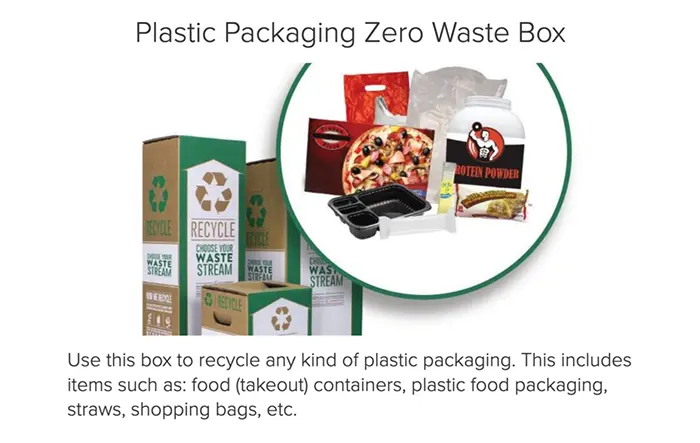
The biggest problems with this are two-fold. First and foremost, it’s expensive. TerraCycle doesn’t make much money from their railroad ties and other products, and they want to make money somehow, so they do it by charging you upfront a rather steep fee for a box and a shipping service.
The other problem is putting postal workers at risk. Putting contaminated masks in the box has the potential to spread the Coronavirus through postal facilities, particularly if a box breaks open while it’s being shipped.
All of this makes a company like TerraCycle a less than ideal solution to the problem. Unfortunately, while we can mention it as an alternative, it’s not necessarily a viable one, so we can’t recommend it.
Other Possible Solutions
There are a few other potential solutions you may be able to investigate if you’re interested in both personal protection and environmental protection.
First up is the idea of buying masks specifically made out of biodegradable materials. These masks can be safely disposed of in the garbage and will degrade into component parts in a landfill much, much more quickly than their plastic mask equivalent. Unfortunately, there are relatively few masks produced with these kinds of materials, so they may be both hard to come by and expensive when you find them.
Another potential option is to invest in a permanent mask. A permanent mask tends to be something more like a respirator than a face mask, and it will have heavy-duty replaceable filter cartridges rather than removable filter packs or built-in filters. These are usually masks made of plastic and rubber and are designed to be reused indefinitely. The filters can be swapped and disposed of, and it’s possible that the manufacturer will have an exchange or recycling program in place for their own brand of filters. For example, some companies have partnerships that allow for recycling some of their masks and other safety materials.
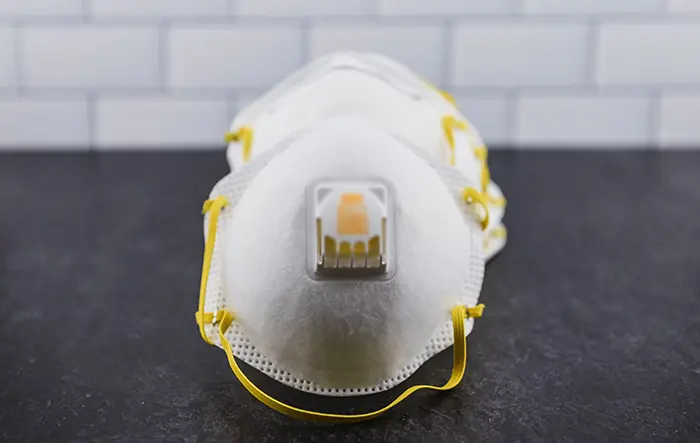
This option is good if you want a permanent mask, but the filters may be more difficult to come by, and the mask can be heavy and uncomfortable compared to a cloth mask. They’re meant for industrial applications, construction, and other heavy-duty uses, not for every-day wearing during a pandemic.
Finally, you might just be able to wait. Scientists have identified a bacterium that eats plastic and processes it into an oil. This is potentially great news for the environment (though the bacteria, if left unchecked, could be a pandemic for our plastics as well). Unfortunately, it might take another decade or more to cultivate that bacteria into a usable form.
What Not to Do
We’ve mentioned a few things you should avoid doing, but we’ll elaborate on them here.
First up, don’t wear gloves unless you have a reason to. Gloves don’t really protect you from Coronavirus. They’re an extra plastic waste, they can contaminate everything you touch, and they’re difficult to remove without further contamination. Plus, they can dry out or irritate your hands. Just don’t use them.
Next, don’t try to burn your masks. They’re plastic, and burning plastic is very dangerous.
Don’t send your masks or gloves to recycling centers. Not only can they not be recycled through traditional means, but their presence can also cause entire batches of otherwise recyclable materials to be discarded.
Wrapping Up
At the end of the day, all you can really do is protect yourself, at the moment, and let other people worry about the environment. Recycling is an industry far larger than any individual, and great resources can be leveraged to improve those processes. It’s not your personal responsibility to do it on an individual scale. Your best bet for environmental protection is to lobby your local government, not to handle recycling as a personal responsibility.
Our biggest recommendation, however, is simple: wear a cloth mask. Cloth masks can do enough to protect you and those around you from the Coronavirus that they’re perfectly effective. Be sure to check out our line of masks! They’re comfortable, reusable, stylish, and effective!

N95s and other more intense masks are best left to medical professionals, front-line workers, and people working with hazardous materials. You don’t need them for a run to the grocery store.
If you have a mostly-unused box of disposable masks that you no longer want to use because you got a cloth mask, our recommendation is to find a local retail store or medical facility and ask about donating them. Some front-line workers will likely be quite appreciative of a few decent masks.
Keep yourself safe first and foremost, and together going forward we can make sure the impact on our environment is taken care of.
Were you previously unaware that you could not recycle face masks? What are your thoughts now? Be sure to let us know in the comments section below!



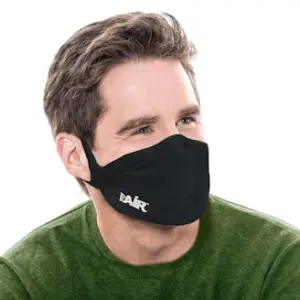
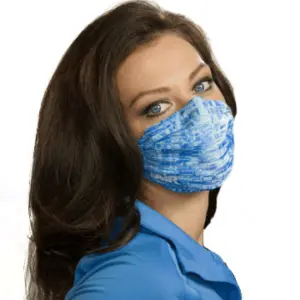






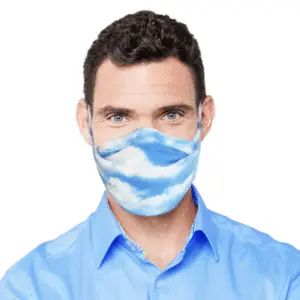

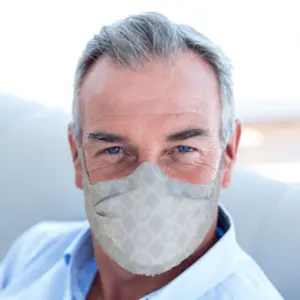

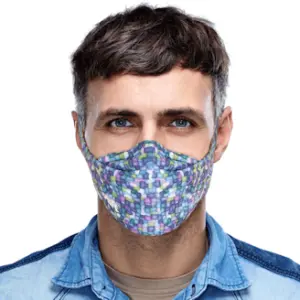




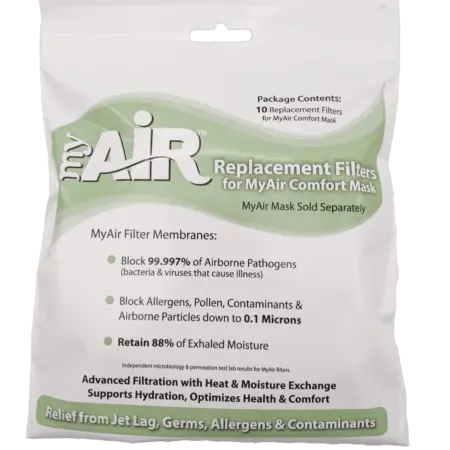
0 Comments